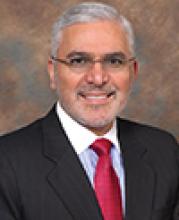A major impact of the antipsychiatry movement is evident in Italy due to the efforts of Franco Basaglia, an influential “psychiatrist-reformer.” Basaglia was so outraged with the dilapidated and prison-like conditions of mental institutions that he convinced the Italian Parliament to pass a law in 19787 that abruptly dismantled and closed all mental hospitals in Italy. Because of uncontrolled psychosis or mania, many patients who were released ended up in prisons, which had similar or worse repressive conditions as the dismantled asylums. Many chronically hospitalized patients died because of self-neglect or victimization within a few months of their abrupt discharge.
Finally, the antipsychiatry movement aggressively criticizes the pharmaceutical industry’s research, tactics, and influence on psychiatry. Also included in the attacks are academic psychiatrists who conduct FDA clinical trials for new drugs and educate practitioners about the efficacy/safety and indications of new FDA-approved drugs. Although industry research grants are deposited at the investigators’ universities, critics mistakenly assume these psychiatrists personally benefit. The content of all educational programs about psychiatric drugs is strictly restricted to the FDA-approved product label, but critics assume that expert speakers, who are compensated for their time and effort, are promoting the drug rather than educating practitioners about the efficacy, safety, tolerability, and proper use of new medications. Part of the motive for attacking this collaboration is the tenet held by many in the antipsychiatry movement that medications are ineffective, unnecessary, or even dangerous. I wish antipsychiatrists would spend a week on an acute psychiatric unit to witness the need for and benefit from psychotropic medications for psychotic, manic, or depressed patients. Although psychiatric patients experience side effects, they are no worse than those experienced by cancer, arthritis, or diabetes patients.
The antipsychiatry movement is regarded by some as “intellectual halitosis” and by others as a thorn in the side of mainstream psychiatry; most believe that many of its claims are unfair exaggerations based on events and primitive conditions of more than a century ago. However, although irritating and often unfair, antipsychiatry helps keep us honest and rigorous about what we do, motivating us to relentlessly seek better diagnostic models and treatment paradigms. Psychiatry is far more scientific today than it was a century ago, but misperceptions about psychiatry continue to be driven by abuses of the past. The best antidote for antipsychiatry allegations is a combination of personal integrity, scientific progress, and sound evidence-based clinical care.


